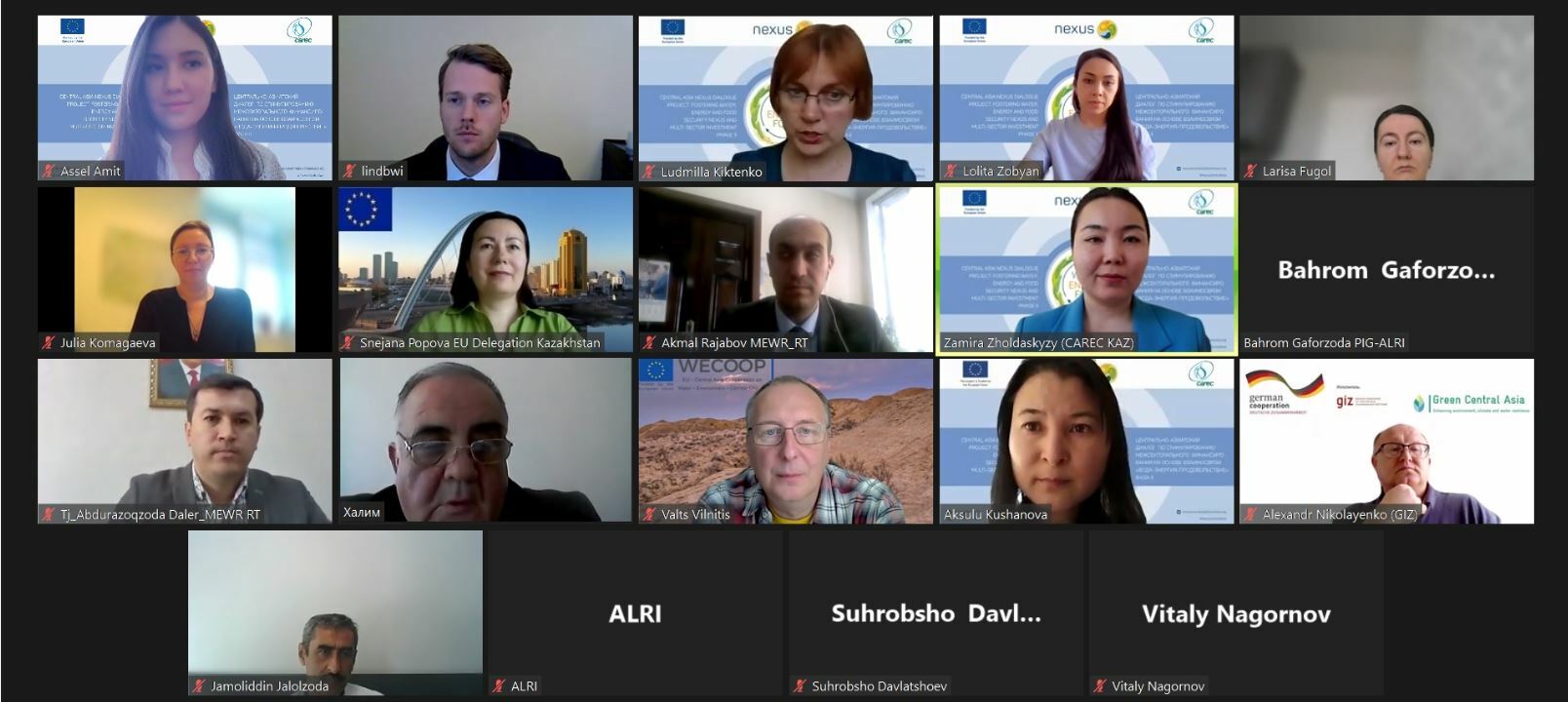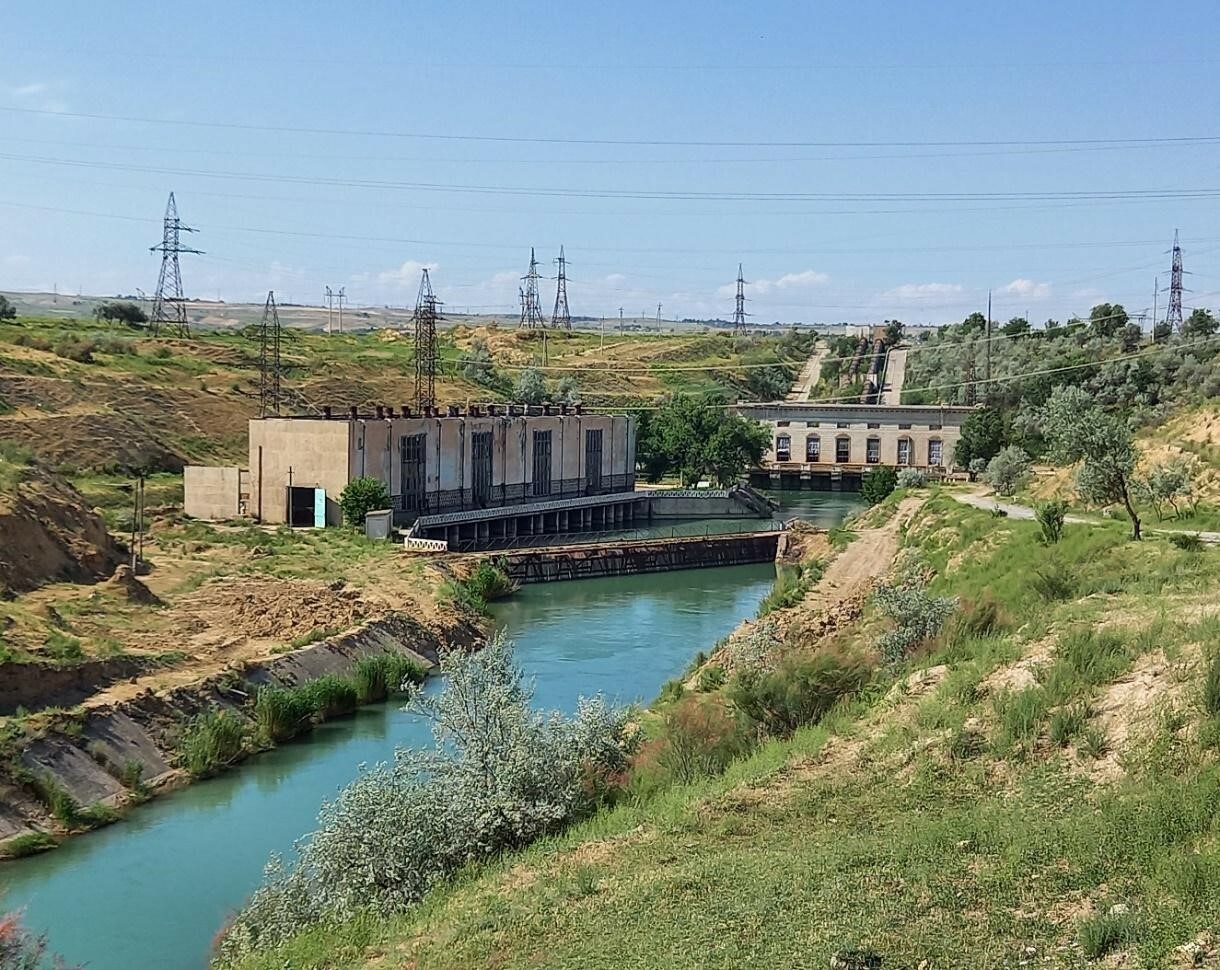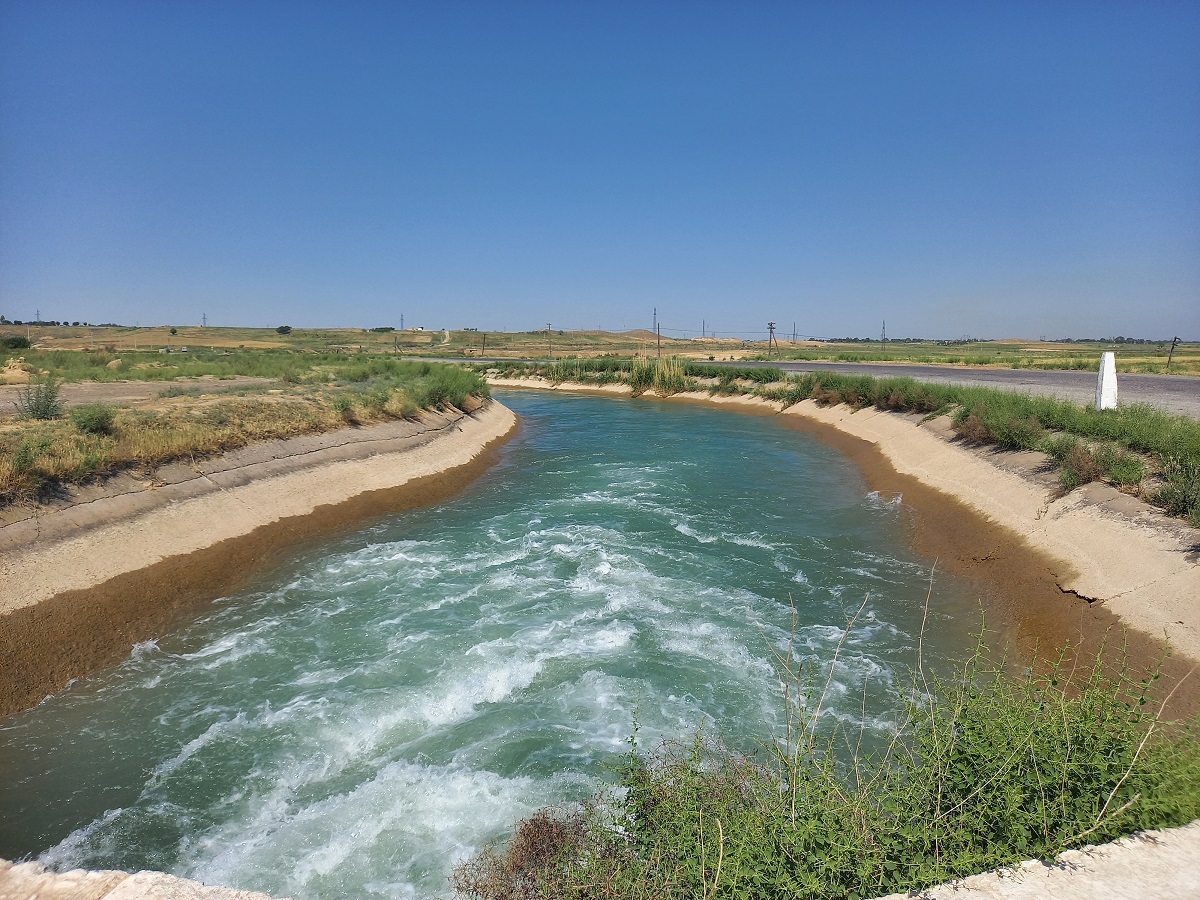Nexus Regional Dialogue Central Asia // EU stimulates investment opportunities for development of water and energy infrastructure in Tajikistan
DUSHANBE, TAJIKISTAN - The European Union (EU) funded project "Nexus Dialogue in Central Asia" conducted the third intersectoral working group on the implementation of the demonstration project in the Republic of Tajikistan. National experts presented key findings and the results of the studies focusing on digitalization and investment opportunities.

DUSHANBE, TAJIKISTAN – Today the third meeting of the intersectoral working group on the implementation of the demonstration project in the Republic of Tajikistan took place online within the framework of the European Union (EU) funded project "Nexus Dialogue in Central Asia". The experts handed over the key results of the executed works on demo project to the Agency of Land Reclamation and Irrigation under the Government of the Republic of Tajikistan (ALRI) and the Ministry of Energy and Water Resources of the Republic of Tajikistan (MEWR) for further use and identification of investment opportunities.
The demonstration project was implemented between July 2021 and February 2022, with the political support of ALRI and MEWR, and the technical support of the project “Laboratory of Innovative Solutions for the Water Sector of Central Asia” under the Central Asia Water and Energy Program (CAWEP).
During the meeting, national experts presented the summary of key findings and the results of the studies. Thus, the experts have developed a concept for the digitalization of the system for monitoring electricity consumption in Sughd region, which includes the IT architecture, institutional and legal frameworks, economic and environmental feasibility, as well as data on financial indicators and resources saved. As a part of the second task of the demo project, the experts presented an investment proposal for the modernization of large pumping stations GNS-1 and GNS-2 with the use of energy saving technologies and a detailed study of potential equipment suppliers.

“The EU places great emphasis on the connection between water, energy and food. Taking a Nexus approach is key in order to promote a more efficient and effective use of resources. This is particularly true in light of the destructive effects of climate change. It is important to make sure that actions in one sector also positively contribute to progress in other sectors. Within the framework of the European Green Deal and our Strategy for Central Asia, the EU is fully committed to continue supporting actions related to the WEF Nexus. In this context, we welcome the work of the experts, which provides a basis for the elaboration of activities to modernise pumping stations,” stated William Lindberg, Delegation of the European Union to the Republic of Tajikistan.
Representatives of the AMI and MEWR acknowledged the relevance of the implemented works to the state policy and outlined further plans and investment opportunities to push forward the results of the demonstration project, which can also be supported by potential investors.
"Irrigated agriculture is a vital element of our national economy. By applying the WEF Nexus approach, we make our economy more sustainable. This will help us achieve our strategic goals, including food and energy security, rural employment and accelerated industrialization of the country" noted Mr Bakhrom Gaforzoda, Consultant to the Agency for Land Reclamation and Irrigation under the Government of the Republic of Tajikistan.
More than half of the irrigated lands of Tajikistan requires machine irrigation due to the mountainous terrain of the country. In this regard, the agricultural sector uses 90% of water resources and 10% of the country's total electricity consumption for pumping stations. At the same time, pumping stations in Sughd region use up to 70% of the country's electricity consumption for pumping stations. Irrigated land produces about 80% of agricultural products, while agriculture creates jobs for 70% of the population and accounts for 20% of the country's GDP. But the pumping stations built in the 50-70s of the last century have undergone considerable wear and tear, the infrastructure lacks energy-saving equipment, which makes it difficult to calculate the electricity consumption. The low solvency of the population and high subsidization of the sector make the irrigation sector unprofitable.
The EU-funded project "Nexus Dialogue in Central Asia" is implemented by the Regional Environmental Centre for Central Asia (CAREC). The project’s duration: June 2020 – May 2023; total budget: EUR 1.25 million with the EU’s contribution of EUR 1 million.


The second phase (2020-2023) of the European Union project "Central Asian Dialogue to Promote Sectoral Financing through the Water-Energy-Food Nexus" is a continuation of the first phase (2016-2019) and is being implemented by the Regional Environmental Centre for Central Asia (CAREC). The project’s duration: June 2020 – May 2023; total budget: EUR 1.25 million with the EU’s contribution of EUR 1 million. The project is a part of the global Nexus Dialogue Programme, which is supported by the European Union (EU) and the German Federal Ministry for Economic Cooperation and Development (BMZ) in five regions.
This article was first published on the CAREC website on April 6, 2022.
Have a look at the Nexus Regional Dialogues Programme in Central Asia project page for more information.
Related Articles
- Nexus Regional Dialogue Central Asia // EU supports integration of water-energy-food Nexus approach into educational curricula in Uzbekistan
- Nexus Regional Dialogue Central Asia // European Union launches the project to support water, energy and food security in Tajikistan
- Nexus Regional Dialogue Central Asia // European Union promotes "impactful investing" in water-energy-food Nexus projects
